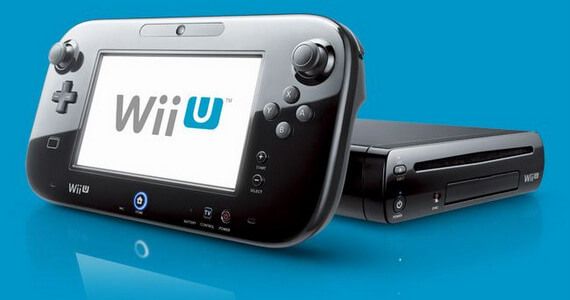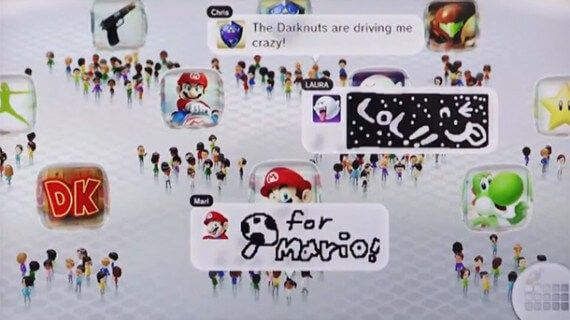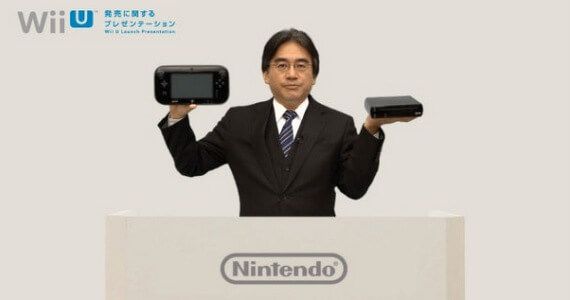This year, thousands of children will wake up Christmas morning and rush to open their presents - unwrapping a shiny new Wii U console from Nintendo. Pre-orders for the Wii successor sold out in a matter of days and, even though more units will come available post-launch, the console is poised to be one, if not the, must-have item for kids this holiday season (with secondary sellers charging upwards of $1,000 per console).
However, while some kids are busy jotting down items on their holiday wish-lists, we're now hearing reports that, in order to meet Nintendo's Wii U orders, Chinese manufacturer Foxconn is utilizing underage workers to deliver on high console demand.
Considering Nintendo's kid-friendly focus, the report is an especially murky example of corporate accountability - since, shortly after the allegations surfaced, Foxconn confirmed to Bloomberg that underage "interns" were being used to assemble products in their factories. In China "underage workers" are defined as "younger than eighteen" but, like the US, teenagers are allowed to work certain jobs - with restrictions in place to protect them from physical danger as well as pressure from employers. As a result, while it might seem off-putting to some, Foxconn isn't breaking the law by including some underage workers in their manufacturing processes.
That said, the allegations go beyond employment of underage workers - with watch dog groups claiming that Foxconn is in violation of pressuring and threatening those underage interns into intensive labor and longer hours.
According to a segment aired during the "Voice of China" program on China National Radio, Foxconn utilized children ranging in age from fourteen to sixteen in their Wii U production. The children were brought into the company through High School-level internship programs where they could receive credit toward their diplomas for work in the factories. However, many of the interns have reported that they were strong-armed into working lengthy overnight hours and/or physically demanding labor - threatened with the loss of their internship (as well as school expulsion) if they didn't comply.
Speaking on anonymity (via a translation at China Labor Watch), fourteen-year-old, "Xiao Wang," one of two thousand Foxconn interns (of which 50-60 are reportedly underage), said:
I did transport work, helping them move goods. Right now, the night shift is 7:40 PM until the morning... you know, til what time in the morning is uncertain. Whenever the work is done is when you get off your shift. If you don't finish the work, he (the production line foreman) won't let you end your shift. Usually, you can get off by 7 AM. My arms would hurt from the work.
Wang was later fired from the facility. After working three consecutive night shifts, he attempted to call in sick to work but his teacher did not approve the request - resulting in Wang's third case of "absenteeism" and automatic dismissal from Foxconn. Some might view his firing as a mixed-blessing but, according to another underage worker, if a student is fired from their internship, they are subsequently expelled from school altogether. There has been no comment from the schools that supply Foxconn with interns regarding the scandal or their expulsion policies and procedures.
Expelled or not, it's no surprise that Wang wasn't feeling well, attempting to balance his school work, a demanding internship, and whatever other obligations the fourteen-year-old might have. While some Wii U consumers might try to put distance between Foxconn's practices and Nintendo's new console, the following exchange does draw a pretty clear line in the sand - when production needs are higher at the company, the underage workforce is held accountable.
More specifically, the report indicates that when workforce demand is high, the interns aren't given any days off:
Reporter: “How many days of rest do you get in a month?”
Underage student: “Not even one.”
Reporter: “No rest during the weekend?”
Underage student: “You have to look at whether or not production output is high. If it is high every weekend, then production won’t stop on any of those weekends.”
The original report directly referenced that underage students were working in Wii U manufacturing - where "production output" would be understandably high. Foxconn came under fire this past summer when it was discovered that student interns were being used to produce Apple iPhone 5's. It's unclear whether or not any of those workers were underage at the time - but, regardless, the student laborers were reporting similar problems (specifically: teachers and Foxconn employees were forcing them to work extended hours).
As mentioned, in response to the Wii U report, Foxconn spoke with Bloomberg News, admitting that underage interns had been found at a facility and took full responsibility for the situation. The company, which oversees numerous manufacturing locations, didn't go so far as to directly address some of the more damaging accusations ("forced" overtime, no days off, etc.) but promised that any violations were a breach of company policy - not approved exploitations of their workforce:
“Any Foxconn employee found, through our investigation, to be responsible for these violations will have their employment immediately terminated. We recognize that full responsibility for these violations rests with our company and we have apologized to each of the students for our role in this action.”
Nintendo has yet to comment on the situation, though we'd expect their company line to be similar to Apple Inc.'s - who sent Foxconn an open letter calling for the company to “ensure decent working conditions.” Ultimately, there's only so much that Nintendo can do at this point but, like Apple, the buck doesn't stop at Foxconn. Video game publishers have a responsibility to make sure that their suppliers aren't using and abusing employees - especially young employees.
Of course, there are no easy solutions - improved working conditions cost manufacturers more, which would increase production overhead, lower the net profit for publishers, resulting in higher console price points - which means consumers also have decisions to make. However, right now, the juxtaposition between the young people who will sit back, relax, and enjoy time with friends and family when the Wii U launches on November 18th and the young people who slaved away in factories to produce the consoles could not be more drastic.
-
Follow me on Twitter @benkendrick.
Wii U launches on November 18th.
Sources: China National Radio, Bloomberg news, & China Labor Watch (via Kotaku)



